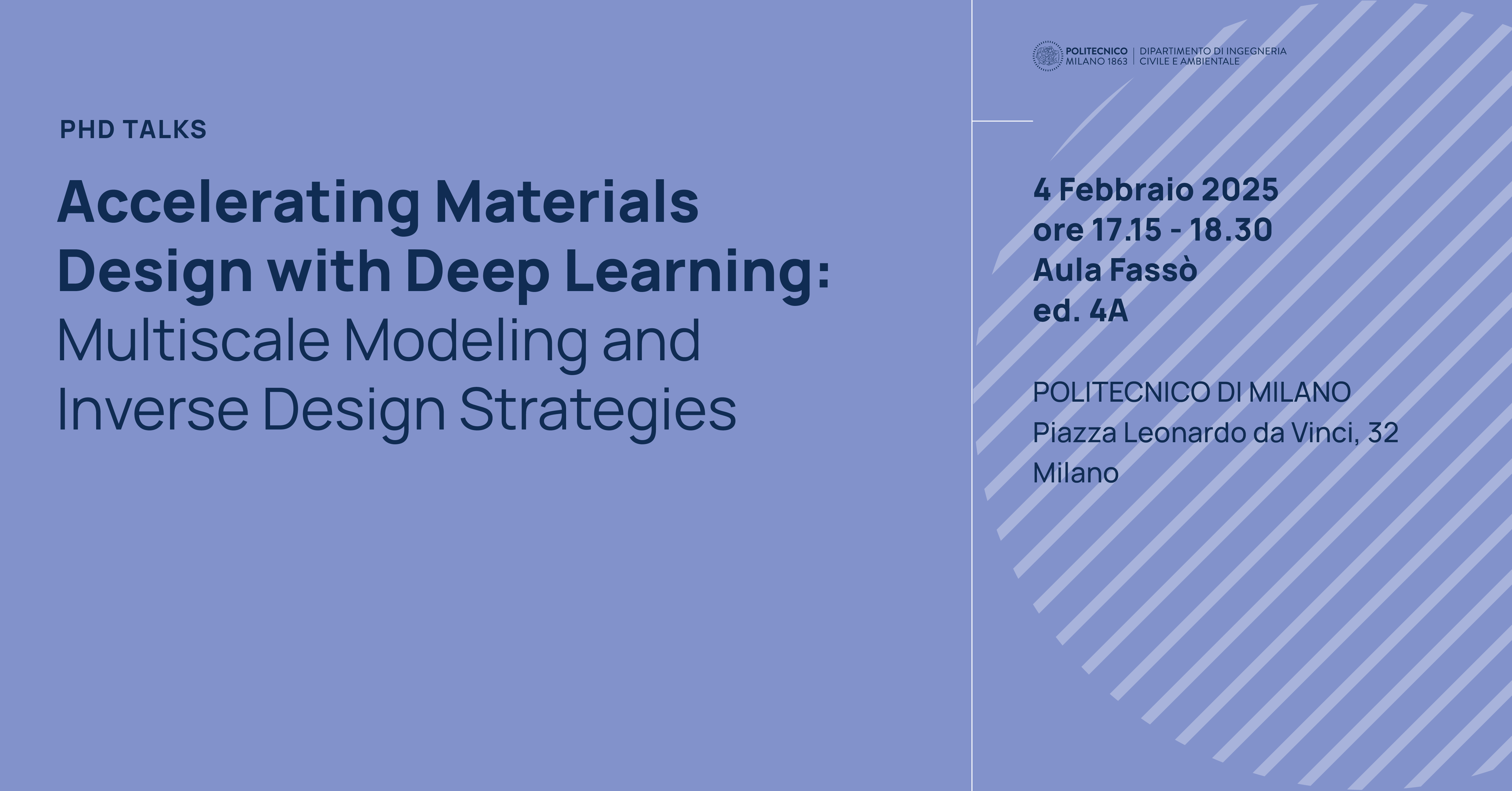
- This event has passed.
PhDTalks | Accelerating Materials Design with Deep Learning: Multiscale Modeling and Inverse Design Strategies

The next appointment in the PhDTalks series will take place on Tuesday, February 4th, in the Fassò Room (Building 4A), from 5:15 PM to 6:30 PM CET.
PhDTalks is a series of seminars and discussions among PhD students. The events aim to provide a space for networking among PhD students and connecting with the many projects developed within our department.
The speaker, José Pablo Quesada Molina, will deliver a seminar titled “Accelerating Materials Design with Deep Learning: Multiscale Modeling and Inverse Design Strategies.”
At the end of the event, a small refreshment sponsored by the department will be available.
It will also be possible to attend the conference online at the following link.
Abstract
This talk delves into the transformative role of deep learning in advancing multiscale modeling and inverse design of heterogeneous materials, with a focus on predictive and generative data-driven approaches. Two case studies exemplify this potential: the first examines polysilicon films commonly used in microelectromechanical systems, employing Convolutional Neural Networks to develop surrogate models that reliably link microstructural characteristics to macroscopic elastic properties. The second explores an inverse design framework for composite materials using Deep Convolutional Generative Adversarial Networks, enabling accelerated material discovery and optimization. These studies demonstrate how deep learning enhances material property prediction and design, emphasizing the interplay between data availability and model generalization.
Speaker’s bio
José Pablo completed his Bachelor’s degree in Mechanical Engineering at Universidad de Costa Rica, where he earned a scholarship to pursue postgraduate studies at Politecnico di Milano, Italy. In July 2020, he graduated with a Master’s degree in Materials Engineering and Nanotechnology. Shortly after, in November 2020, he began his Ph.D. studies in the Structural Seismic and Geotechnical Engineering program.
His research focuses on applying deep learning (DL) strategies to tackle challenges in the modeling and design of microstructurally heterogeneous materials, such as polycrystalline solids and composites. By utilizing advanced architectures like Convolutional Neural Networks and Generative Adversarial Networks, his work aims to accelerate material discovery, optimize structural responses, and predict effective properties across multiple scales. Additionally, his research investigates the generalization capabilities of data-driven models in complex systems, with a particular emphasis on exploring the potential of DL to effectively address out-of-distribution scenarios
José Pablo’s Ph.D. studies are funded by Universidad de Costa Rica as part of a program dedicated to enhancing the academic qualifications of its teaching staff. After completing his Ph.D., he will return to Costa Rica as a full-time professor in the Mechanical Engineering Department, where he plans to contribute to academic excellence and foster research in computational materials science.
In his free time, José Pablo enjoys hiking, exploring nature, and reading.
